To close our 30th anniversary year, WFN awarded £1.4 million in Continuation Funding in 2023 – our largest ever round of funding!
Continuation Funding awards are follow-on grants that allow past Whitley Award winners to respond to urgent needs to scale-up their conservation work and address new challenges. In many cases, this vital line of funding is key to the sustainability of successful projects and vital to securing further species protections that help to stabilise fragile populations beyond the borders of initial project sites.
Responding to the growing needs of our Winner Network, the latest round of Continuation Funding is supporting 16 applicants with a total of £1,400,000 in grants, as well as additional legal funding provided by Richard Buxton Solicitors worth £19,000 to five applicants.
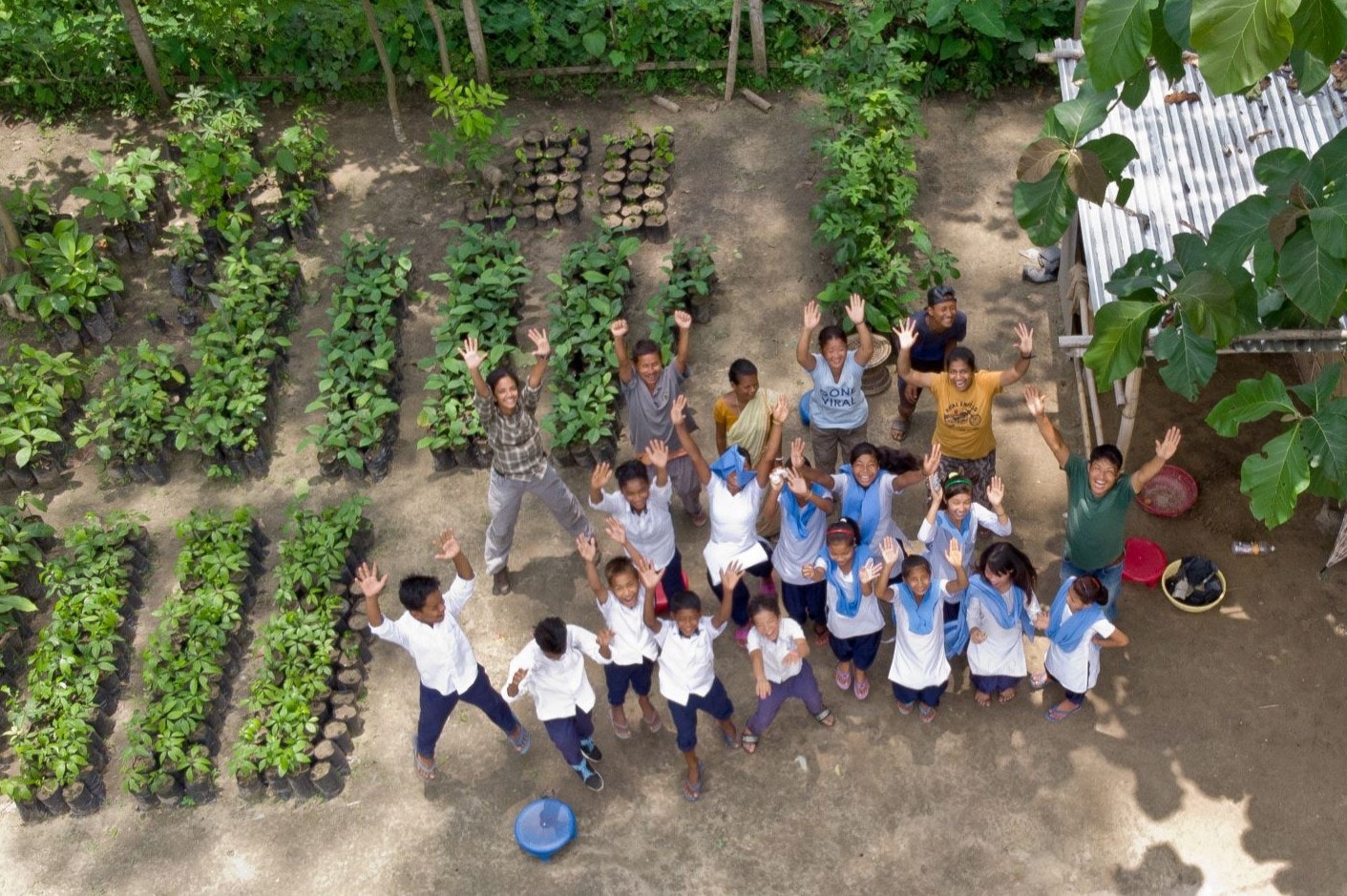
Our largest ever year for the programme, this laddered funding will support locally-led projects in 20 countries with conservation leaders working across 220,974 km2 of land and sea. Their proven approaches focus on conservation across a range of solutions to halt and reverse biodiversity loss, including working with farmers to switch to more sustainable agricultural practices; supporting alternative livelihoods among communities through agroforestry cooperatives, beekeeping, local ecotourism initiatives and training local horticulturists, forest guardians and rangers; and installing community healthcare initiatives that use innovative ways to integrate wildlife conservation practices.
Continuation Funding recipients are making a global impact through ecosystem restoration and population recovery of endangered species, growing their projects nationally to connect habitat fragments, control invasive species and tackle wildlife crime, and internationally to build multi-level partnerships and alliances, secure wider legal protections and improve law enforcement to protect migratory species across air and ocean.

Impressively, this round of funding will benefit biodiversity across a range of biomes, covering 17 different habitat types. This includes grassland, steppe, mangroves, rainforest, temperate wetlands, tropical wetland and riverine forest spanning the Amazon, Congo Basin, Miombo woodlands, Eastern Himalayas, Patagonian Steppe, Central Andes, Caribbean flora hotspot, Tanoé-Ehy swampy forest, Eastern Tropical Pacific Ocean and more!
We are so grateful to the donors who directly support our Continuation Funding programme to make these impactful grants possible – thank you for your sustained and important support.
Introducing the 2023 Continuation Funding winners…
Protecting owl monkeys through tackling wildlife crime
Angela Maldonado (2010 Whitley Gold Award) – £50,000 over 1 year
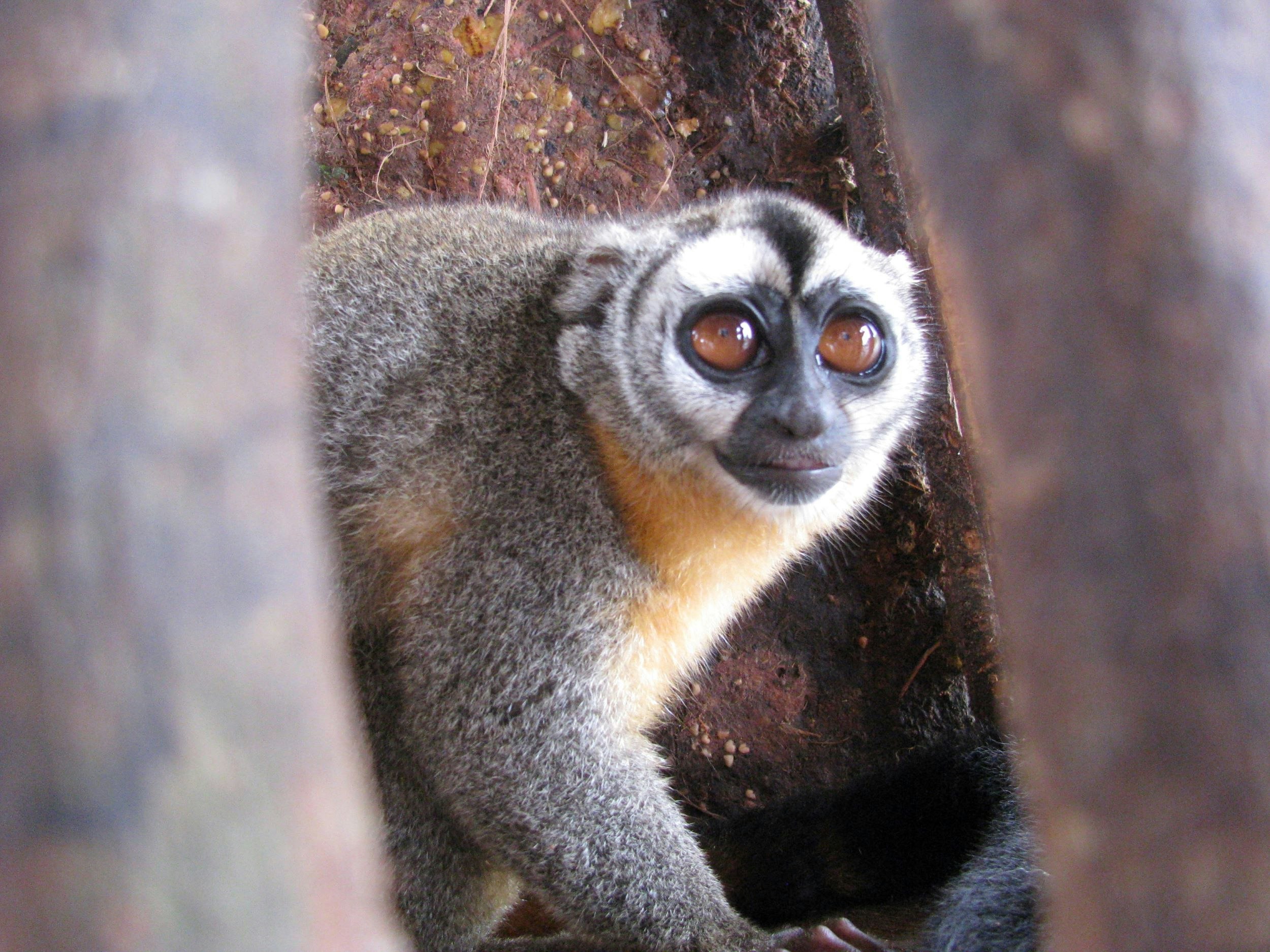
Nancy Ma´s owl monkey (also known as ‘night monkeys’, due to their nocturnal lifestyles) have been drastically impacted by illegal trade in the Colombian-Peruvian Amazon. The round-faced primates are crucial to seed dispersal and as a food resource for indigenous peoples, but they are intensely removed from the forest for purposes of commercial hunting, biomedical research and selfie tourism.
After being subjected to research procedures, the night monkeys are released back into the wild without follow-up, risking the stability of resident populations through displacement, transmission of zoonotic diseases and hybridization.
For 25 years, Angela and her team at Entropika have been working to protect the animals, whose environment is also affected by illicit crops and timber extraction that fragments the forest and jeopardizes indigenous livelihoods. Through collaboration with local communities, Angela and her team work to establish alternative sustainable income sources – with the aim of reducing wildlife trade and the extraction of natural resources from their forest home.
Combined with tougher environmental law enforcement, her approach is driven by community-based research and has seen positive impacts from nature tourism, which Angela hopes to replicate from Colombia to San Pablo, Peru, using her Continuation Funding grant. In the absence of governmental follow-up and assessment, Angela will also work to gather data on the impact of released Nancy Ma´s owl monkeys in an ecosystem that is also home to brown-throated sloths and rare river dolphins.
Restoration work: growing orangutan habitats through community dental care
Hotlin Ompusunggu (2016 Whitley Gold Award) – £100,000 over 2 years

Dentist Hotlin Ompusunggu champions a unique, community-designed approach to conservation which provides healthcare incentives for communities living around threatened forest ecosystems and wildlife in North Sumatra. With her Whitley Award and subsequent Continuation Funding, Hotlin established Yayasan Healthy Planet Indonesia (HePI), which has seen the creation of an affordable dental clinic to promote conservation in the irreplaceable Leuser Ecosystem home to rhino, tiger, elephants and orangutans.
Using further Continuation Funding, Hotlin will bring HePI’s work into the Batang Toru Ecosystem – the only known habitat of the recently discovered Tapanuli Orangutan – which is already threatened by illegal logging and monoculture agriculture. She will expand HePI’s work with a series of locally designed, community-led solutions to combat deforestation and habitat degradation, including the opening of a new dentistry clinic that will also serve as a base for training in alternative livelihoods and provide conservation education about the links between human and forest health. The clinic is key to Hotlin’s strategy of gaining community trust, boosting the availability of healthcare and establishing a commitment to more sustainable agricultural techniques.
Developing an innovative payment system at the new clinic will allow Hotlin and her team to ensure accessibility for local and indigenous communities, with quality dental care paid for by non-cash means, such as tree seedlings. Community members can utilise fruit tree species sourced from their home gardens without causing impact to natural forest regeneration processes. Seedlings received as patient payments will be allocated to local farmers as part of an agroforestry scheme to generate income from non-timber forest products and deter farmers from switching to monoculture agriculture, or logging.
Additionally, Continuation Funding will support a youth empowerment programme in the area, where a young person from each hamlet will be trained as a ‘guardian of the forest’ monitoring biodiversity using camera traps and collecting anecdotal data on land clearing and field observations. It is hoped that this will set a precedent for HePI’s partner conservation organizations to follow in adopting more community-centered approaches while safeguarding the future of one of the planet’s most recently discovered mammals.
Putting down roots: Stabilising futures through marine and coastal management
Jean Wiener (2014 Whitley Gold Award) – £100,000 over 2 years
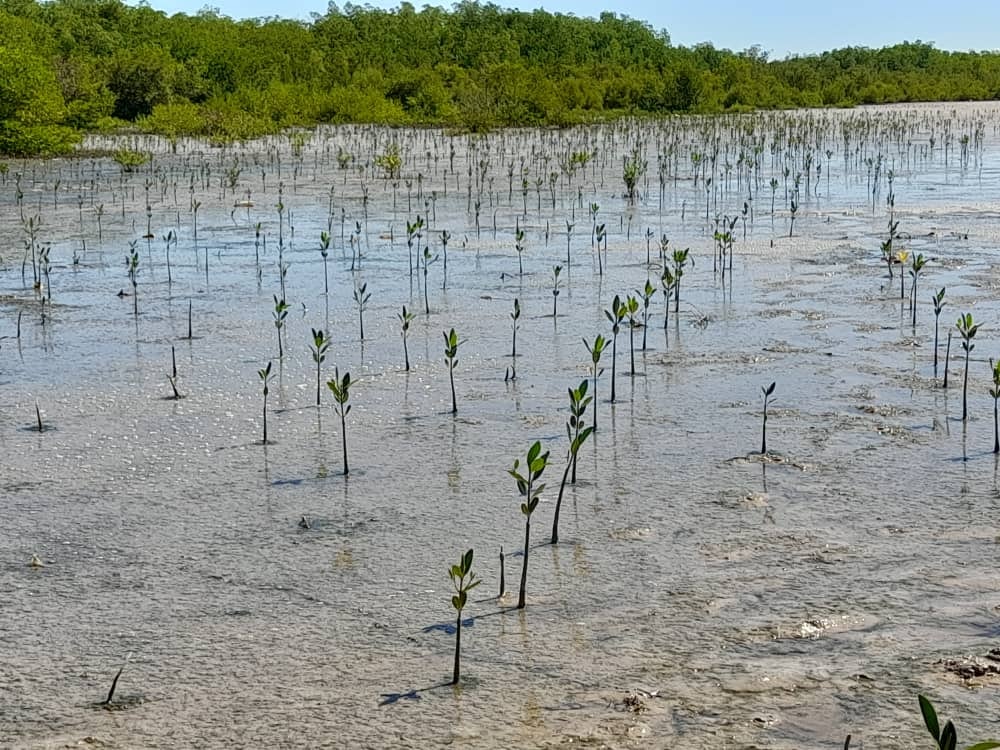
The management of Haiti’s Marine Protected Areas (MPAs) officially lies with the National Agency of Protected Areas (ANAP) and local municipal/county mayors, but an absence of allocated budget means there is a lack of training in the public sector to manage and monitor resources effectively. Jean Wiener and his team at FoProBiM have established a team of Eco-Guards (Gad Ekolojik) who are currently the only park rangers working within any of the MPAs, but there is a desperate need to scale up this work.
MPAs in this region are under continued direct threat from unsustainable and extremely damaging fishing and agricultural practices; coral exploitation for construction material; marine pollution; and the cutting of trees and mangroves for fuel wood and charcoal production. Such activities leave local communities more vulnerable to climate change, as the environment becomes less resilient to storm surges and flooding, food security is threatened and local livelihood incomes diminish.
Continuation Funding will enable Jean to build capacity among the ANAP, local government authorities, Haitian university students, FoProBiM and the Gad Ekolojik team to govern and manage resources in the 3Bays MPA. He will also provide training and equipment to fishing communities to ensure effective management of a further 10,000 hectares.
Raising awareness among communities about generating viable and sustainable incomes that don’t harm local biodiversity and ecosystems, is a key factor in overcoming the challenges that Jean and his team at face in this vulnerable environment. Traditionally, local people have regarded environmentally friendly income options as being limited to sea salt production, small-scale agriculture, and fishing, but using Continuation Funding, Jean and his team will provide alternative livelihood options to 200 stakeholders living around the 3Bays MPA, including expanding upon already successful beekeeping and honey sales programmes and developing breadfruit flour initiatives.
Using educational activities, they will work to promote the benefits that coastal and marine ecosystems provide to individuals and the community, engaging 100 fishers in sustainable methods and swap damaging illegal fishing gear for more sustainable equipment. Together with local stakeholders, Jean and his team plan to rehabilitate the area; reforesting and restoring ecosystems through planting 25,000 mangroves and measuring the carbon sequestration potential of the mangrove forests to explore incentives the protection of coastal ecosystems.
Forging forest alliances to scale up hornbill protection
Aparajita Datta (2013 Whitley Award) – £100,000 over 2 years

The Eastern Himalayan region of India is part of two global biodiversity hotspots and is known for its biological and cultural diversity. For 25 years, Aparajita Datta has worked to protect the region, which is threatened by agriculture expansion, cash crop plantations, illegal logging, and hunting – all of which are exacerbated by poor law enforcement. Global Forest Watch estimated that over 12,000 km2 of tree cover and 2879 km2 of primary forest cover was lost in north-east India from 2001 to 2019.
Although 65% of the forest is community-owned, conservation efforts have mostly been led by the government in protected areas. Using hornbills as a flagship species, Aparajita and her team at Nature Conservation Foundation India are working to address deforestation through community participation and livelihood building. Her Hornbill Nest Adoption program actively promotes the protection of hornbill nests through assigning community stewards and the result is that poaching and disturbances have been drastically reduced with nesting success increasing from around 50% in 2018, to 92% in 2022. Since 2022, Aparajita and her team have also grown approximately 10,000 tree saplings annually to be used for ecological restoration in degraded forests, and as shade trees in tea and coffee plantations.
Aparajita’s small-scale models for hornbill conservation, forest restoration and nature education have been impactful and generated much learning over the last decade, however they have remained intensive, localised efforts, while the threats to hornbills and forests span over a larger landscape. Aparajita will now use Continuation Funding to build upon her success by expanding the Hornbill Nest Adoption program model into government policy, promoting community stewardship outside of Protected Areas and forging new alliances to help with its delivery. The scale up of restoring degraded forests will eventually contribute to increased forest cover across the range area of multiple species of hornbill (including Rufous-necked, Oriental Pied, and Great Hornbills), building connectivity for wildlife between forest fragments and allowing for carbon sequestration.
Rediscovered yet rapidly disappearing: Recovery plan for the Short-tailed Roundleaf Bat
Iroro Tanshi (2021 Whitley Award) – £50,000 GBP over 1 year

The Short-tailed Roundleaf Bat was rediscovered in Nigeria after 45-years of no recorded sightings. Today, it remains among the top 1% of the world’s most endangered bats, with a known population of less than 1,500. Despite this, the species is only formally protected in Afi Mountain Wildlife Sanctuary and Cross River National Park in Nigeria, and nowhere else in its range.
2021 Whitley Award winner Iroro Tanshi is implementing immediate and long-term action to support the recovery of these bats, which once more face extinction due to intensifying wildfires caused by farmers and disturbances of the caves they roost in by hunters. The Short-tailed Roundleaf bat has seen recent population crashes that have affected 70% of known subpopulations, making the need for protecting them all the more urgent. Added to this, rebounding recovery rates are intensely hindered by the bats occurring in naturally small populations, with a low reproduction rate of just one pup per year.
To overcome these challenges, Iroro established the Curtus Conservation Network, representing a system of in-country experts working to conserve the Short-tailed Roundleaf bat. Using her initial Whitley Award funding, Iroro also deployed Forest Guardians to prevent wildfires around the Afi Mountain Wildlife Sanctuary and established alternative livelihoods to reduce the community’s dependence on fruit bat hunting.
With Continuation Funding, she plans to scale up this work by collaborating with Curtus Conservation Network members on a revised action plan to strengthen range-wide efforts to support the species. This will involve in-country assessments of the species in underrepresented range states in Cameroon and Equatorial Guinea; biweekly ranger patrols to help protect three recently discovered populations – including the only known cave roosting population in Cross River National Park – and raising awareness of the species through community outreach events. Funding will also support an Early-warning Wildfire Prediction and Prevention program to protect 86,000 hectares of biodiversity rich forest in the Afi Mountain Wildlife Sanctuary, where Forest Guardians are currently faced with limitations around equipment, transport and access.
From poaching to protection: Community-led management plans for primate priority sites
Inza Koné (2012 Whitley Award) – £100,000 over 2 years
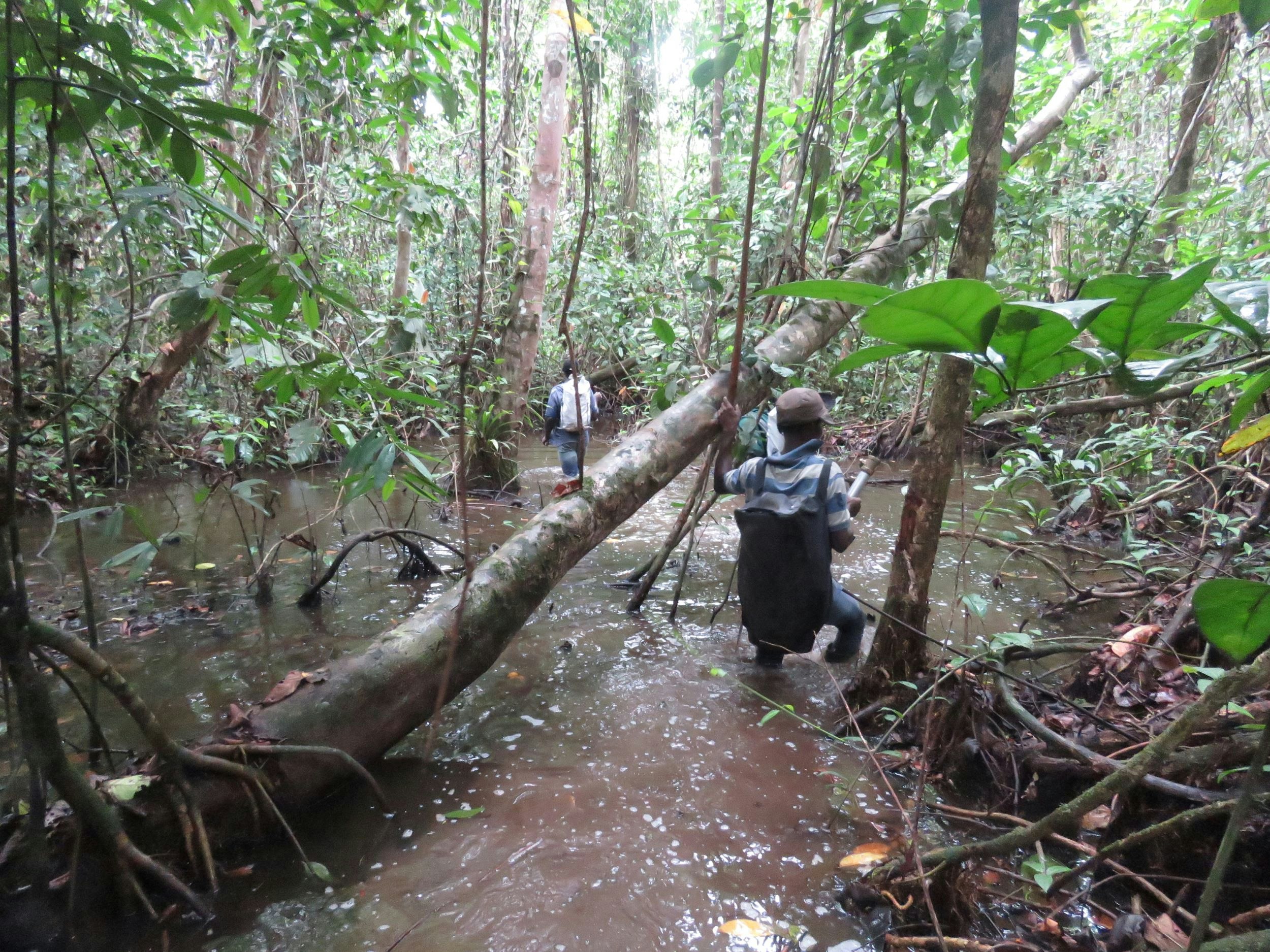
The Tanoé-Ehy Forest in Côte d’Ivoire is a top priority site for primate conservation in West Africa, however, ecologically damaging practices such as chainsaw milling, agricultural clearings, and poaching threaten the swamp forest’s biodiversity.
Inza Koné has worked to involve communities in forest management and biodiversity monitoring, which has led to reduced poaching activities in south-eastern Côte d’Ivoire – with bushmeat no longer available in most local villages – and chainsaw milling eliminated in zones close to villages involved in the project.
Inza and his team from Research and Actions for the Conservation of Primates programme (RASAP-CI) have trained more than 30 former poachers as ecoguards to oversee conservation activities, often working closely with government rangers on surveillance patrols. This kind of community level conservation, coupled with supporting the development of sustainable alternative livelihoods, has helped to prevent the destruction of 12,000 hectares of forest habitat, with reports of species such as primates, ungulates and otters serving as population indicators that demonstrate reduced human pressures.
Building upon this success, Inza will use Continuation Funding to develop and implement a forest management plan that empowers local people to manage the area’s first community reserves. Plans include carrying out surveillance, biomonitoring, and biological and socio-economic surveys of the swampy Tanoé-Ehy Forest. He will also work with local farmers in areas of potential human-wildlife conflict to offer support and establish solutions in preventing loss of income, educating on the importance of creating buffer zones between the forest and areas of crop production and encouraging the cultivation of plants that are not consumed by monkeys in these areas of risk.
Protecting the Patagonian Steppe
Kini Roesler (2021 Whitley Award) – £100,000 over 2 years
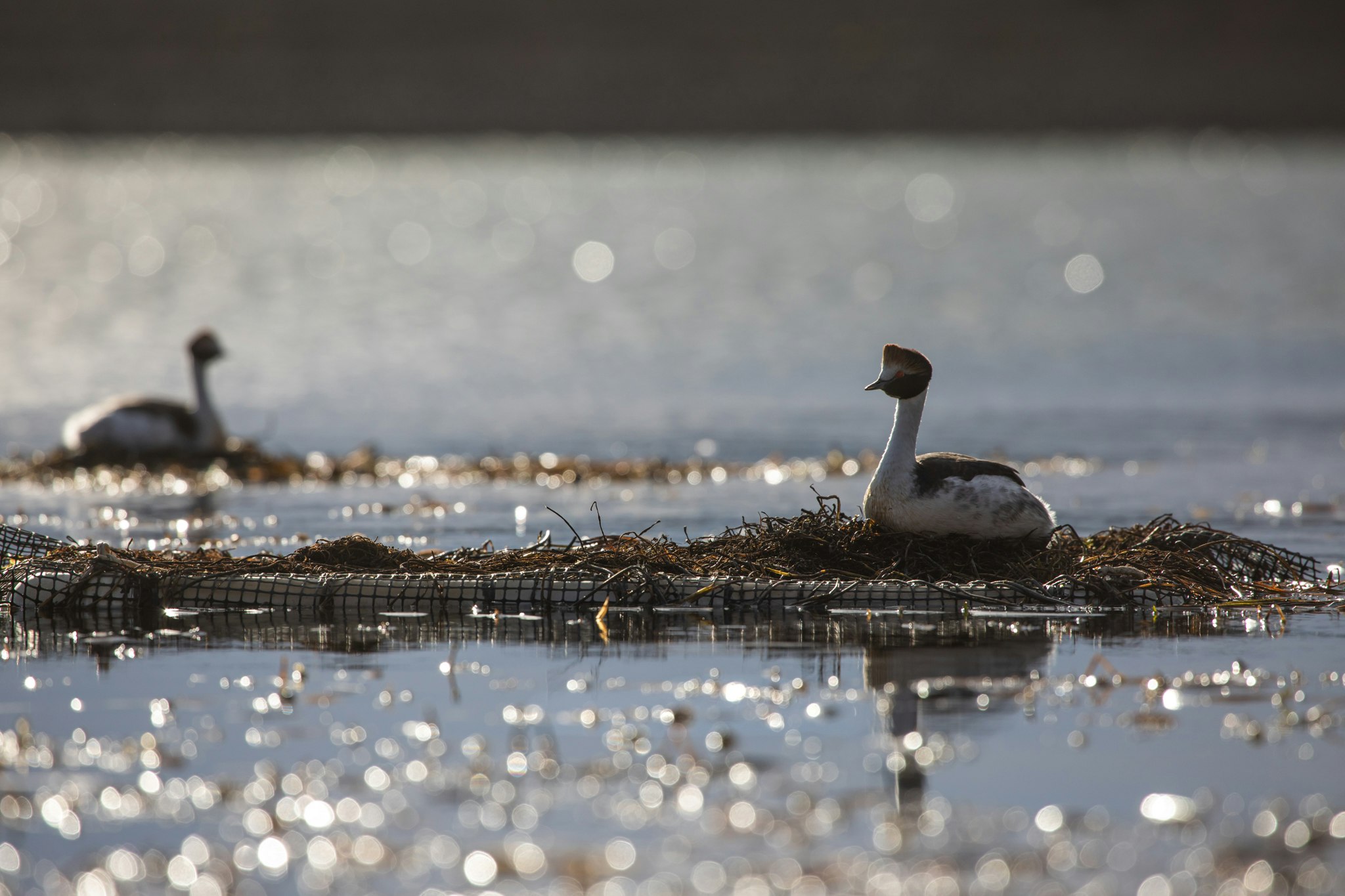
The Critically Endangered Hooded Grebe is a symbol of the Patagonian steppe, pushed to the brink by invasive species, resource extraction, and unpredictable weather patterns due to climate change.
Kini Roesler and his team at Aves Argentina have helped stabilise the fragile populations, building infrastructure to protect nests from strong winds, gaining local support through creative education campaigns, and establishing evidence-based conservation strategies that are ready to be scaled.
With Continuation Funding, Kini will continue to answer critical questions about the grebe’s life cycle while extending his research to include three additional flagship species of the Patagonian steppe: the Southern River Otter, Austral Rail, and Wolffsohn’s Vizcacha. He will work with other organisations and stakeholders in the area to expand the ongoing invasive species management system, replicating successful conservation strategies across Patagonia. Lastly, he will continue to invest in the next generation of scientists, strengthening his training programme for early-career conservationists and equipping them with specific knowledge and skills to protect this unique and often forgotten landscape and the rare species that thrive there.
Greening great ape territory through a nature-positive economy
Manfred Epanda Aimé (2006 Whitley Award) – £100,000 over 2 years

As one of the pioneering conservationists behind Tropical Forest and Rural Development, Manfred has helped to establish an innovative model that helps communities at the peripheries of protected areas around Dja Fauna Reserve, Cameroon, to conserve their land, improve local perception of wildlife, and thrive through green businesses.
Since confirming the presence of chimpanzees and gorillas in hotspots outside of the reserve, Manfred and his team train community leaders to deliver conservation programmes based in agroforestry, tree planting, and sustainable harvesting of non-timber forest products. The model supports communities to develop income-generating activities that avoid deforestation and reduce poaching for bushmeat, with women and youth at the centre. This nature-positive economy is established further by creating local groups and connecting a network of green businesses that produce natural products, providing them with ongoing training in quality and compliance with national and international standards.
Using Continuation Funding, Manfred will scale up this work. As one of the founder members of the Ethical Conservation Alliance, he will work to train new community leaders on the 8 PARTNERS Principles, building ownership and leadership in conservation among local and indigenous communities.
He will work to increase livelihood opportunities for women in the certified Non-Timber Forest Products industry; increase the number of Rainforest Forest certified cocoa farmers working on climate change mitigation; and oversee the planting of 120,000 native food trees in agroforest plantations. Through environmental education programmes and site monitoring with camera traps, Manfred will work to prepare the forest as a suitable area for great ape eco-tourism, incentivising the protection of the chimpanzees and gorillas that live there.
Nurturing native palm species to tackle food insecurity
Alberto Gomez-Mejia (2005 Whitley Award) – £50,000 over 2 years

Around 20% of Colombia’s 265 palm species are in danger of extinction. 2005 Whitley Award winner Alberto Gomez-Mejia works to secure a future for two of these palm species; Palma taparo and Chontaduro, which are widely used as food plants in a country where 51% of the population experiences food insecurity. His work centres on ensuring genetic variability in the two species, reintroducing some into the wild as a restoration scheme and developing plantations for their stable growth and sustainable use.
Alberto and his team at Instituto Humboldt will work with the local communities to aid the recovery of wild populations of the palms; collecting data on the palms’ population status and reproductive ecology in Colombian central Andes. Together with his team, he will implement an education strategy to share knowledge of the species with those who rely most on its existence.
Continuation Funding will help to future-proof this work, upskilling members of Alberto’s senior team and supporting the development of Germplasm banks of the species – highlighting the importance of regional botanical gardens in researching and conserving endemic species.
Beyond borders: Securing migration routes of Red-breasted Geese against illegal hunting
Nikolai Petkov (2019 Whitley Award) – £100,000 over 2 years

The Red-breasted Goose is a flagship species for Bulgaria’s Shabla and Durankulak Lakes, which have been declared wetlands of international importance under the Ramsar Convention. Since the implementation of a National Species Action plan, poaching activities have reduced around these key wintering sites. Extended non-hunting zones, intensive patrols, training, and awareness work has helped to protect the birds in Bulgaria.
However, as migratory birds, their protection requires a multinational approach – which is why Nikolai Petkov is working beyond the borders of Bulgaria and targeting major conservation threats for the Red-breasted Goose in Romania and Kazakhstan. This involves using satellite tagging to collect data on wintering numbers and their flight movements between sites of breeding and feeding importance; working with farmers to resolve conflict with wintering geese (which eat their crops); and raising awareness of illegal retaliatory killings while ensuring stronger law enforcement from authorities.
Continuation Funding will enable Nicky to evaluate the global population through conducting surveys across key wetlands in Kazakhstan during autumn migration. He’ll work with communities and hunting estates in Kazakhstan to install a patrol system to reduce incidents of illegal killing and raise awareness around hunting violations during the country’s autumn and spring hunting period. In Romania, Nicky and his team from the Bulgarian Society for the Protection of Birds will assess the impact of grazing geese on crop yields to inform development of an adequate agri-environmental scheme for farmers. He will also work with authorities to examine the impact of a new Hunting Act in Romania that threatens to open the floodgates to heavy disturbance on the country’s wintering waterfowl.
The project will not only benefit Red-breasted Geese, but also many other wetland species along the flyway. The route that the species uses for migration is used by several other waterfowl species including the globally threatened Lesser White-fronted Goose, the White-headed Duck, Common Pochard and Ferruginous Duck.
Last chance of survival for the Giant Sable
Pedro Vaz Pinto (2006 Whitley Award) – £100,000 over 2 years
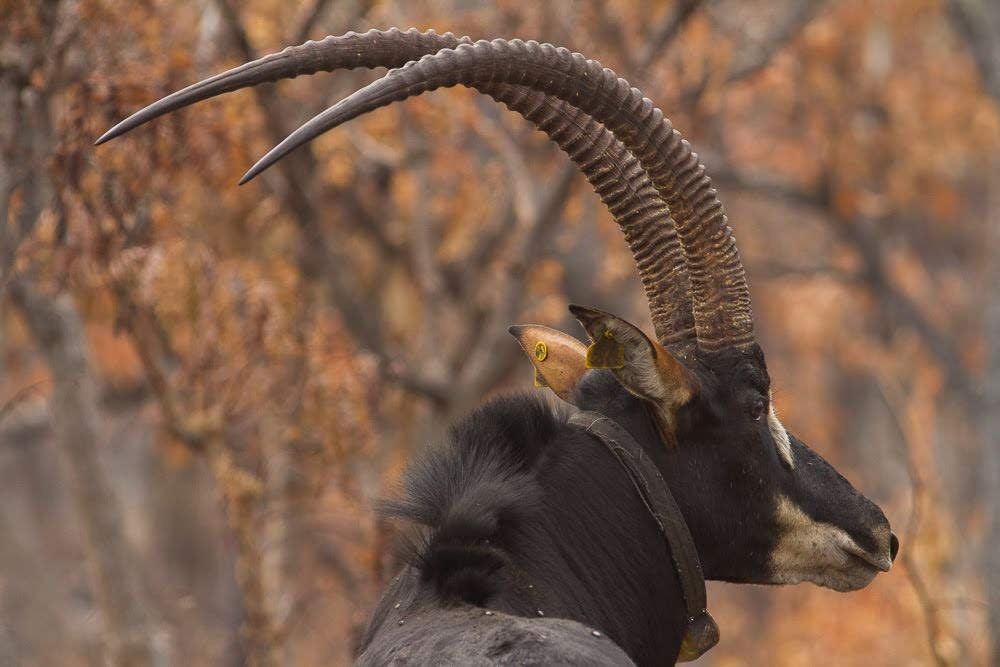
The Critically Endangered Giant Sable is a rare subspecies of the Sable Antelope, native and endemic to the region between the Cuango and Luando Rivers in Angola. In Luando Strict Nature Reserve (LSNR), the species is at very high risk of local extinction due to poaching, despite its strong cultural significance to local communities.
Expanding on his work to save the species in Cangandala National Park – the only other population of Giant Sable – Pedro Vaz Pinto is now focusing on population recovery in LSNR. As poaching with indiscriminate snares represents the biggest threat to the species, it is vital to direct efforts towards reducing and ultimately eradicating the use of traps.
Using Continuation Funding, Pedro will expand activity to curb poaching pressure by recruiting four new rangers to scale up presence and get “boots on the ground” in lesser explored areas of the reserve. Together with his team at Fundação Kissama, he will measure the numbers of sable and their birth and death rates to determine population viability; using aerial surveys to evaluate success and GPS trackers to collect data from individuals and herds. Continuation Funding will allow the number of tagged females to be doubled.
The survival of the subspecies in this reserve depends heavily on the success of Pedro’s project, which will also strengthen relationships with Government and local authorities and implement training and education programmes to empower resident communities to enhance local conservation capacity to bring this iconic species back from the brink.
Planting the seeds for large-scale conservation projects in Cuba
Luis Torres (2014 Whitley Award) – £100,000 over 2 years
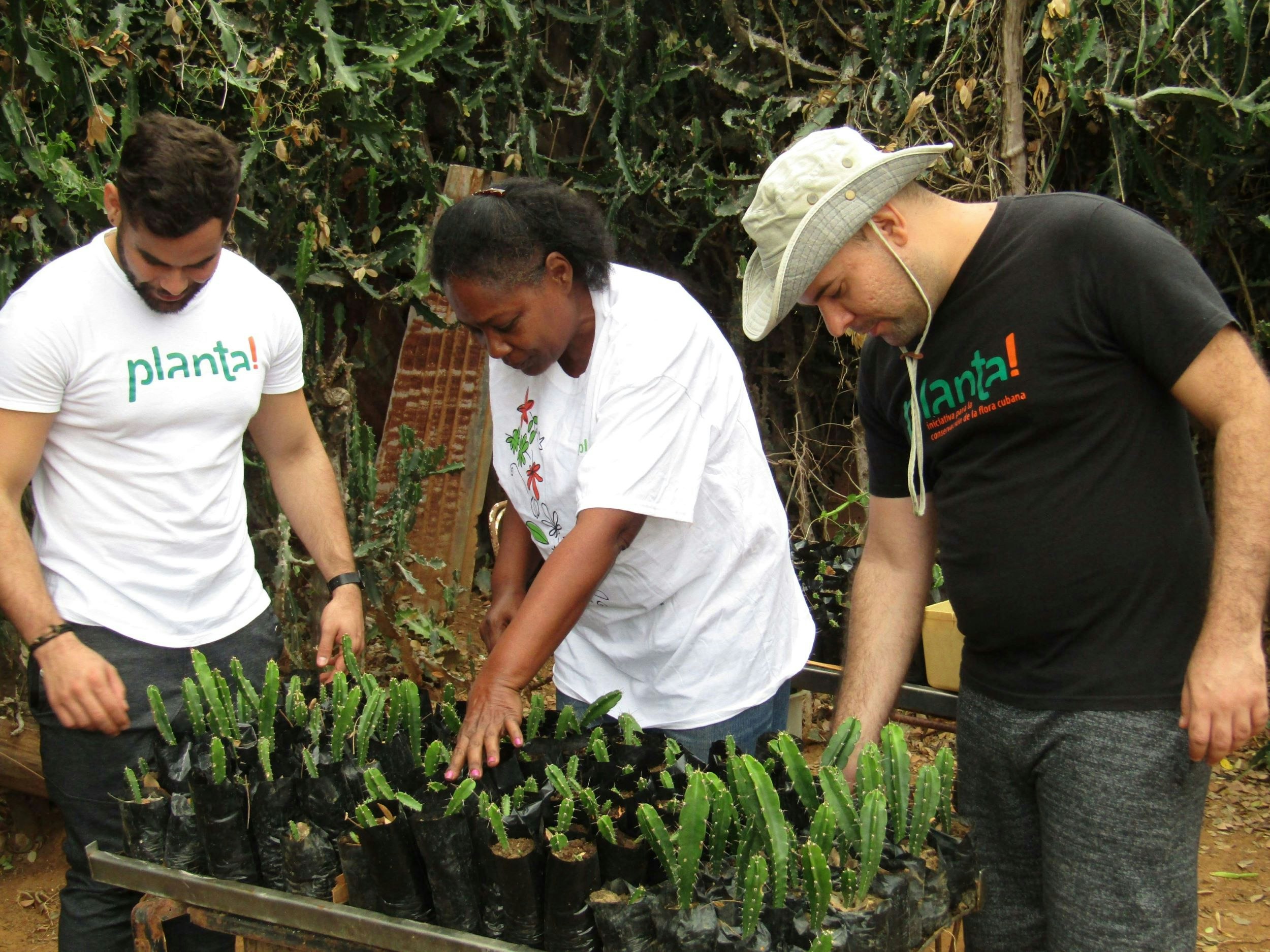
Luis Torres has spent decades working to safeguard Cuba’s unique and diverse flora, empowering local communities, and supplying native plants to conservation initiatives across the country.
He and his team at Planta! have successfully reversed the decline of 12 threatened native plant species and are restoring over 500 ha with rare and endangered saplings. By establishing partnerships at every level – from farmers and local communities to the IUCN and the National Network of Botanic Gardens – Luis is helping sustainably manage and conserve plants and ecosystems throughout Cuba.
With further Continuation Funding, Luis will develop detailed germination and seed storage protocols, maximising the potential of native plant nurseries by improving successful propagation rates. To increase the availability of conservation-grade native plants, he will support the establishment of 20 native plant nurseries, training 40 local horticulturalists to oversee and manage the expanded network. New nurseries will grow more than 22,000 rare and threatened species that occur outside of protected areas, returning biodiversity to farms and local lands and protecting communities from weakened monoculture crops.
Safeguarding sharks and rays through increased marine protections
Randall Arauz (2004 Whitley Gold Award) – £100,000 over 2 years

Following relentless work to secure protections for endangered sharks and ray species in the Eastern Tropical Pacific, in March 2023, all of Randall Arauz’s project sites were declared Important Shark and Ray Areas (ISRA’s) by the IUCN’s Shark Specialist Group. Successful lobbying at the Convention on International Trade in Endangered Species of Wild Fauna and Flora (CITES) CoP 19, just four months prior, also saw an Appendix II listing for requiem sharks; but there is still much work to be done…
Randall is now focussing efforts on the protection of the “Triangle” of unprotected waters around Columbia, Ecuador, El Salvador, Guatemala, and Panama, which is wedged between two existent Marine Protected Areas (MPAs). Using Continuation Funding, he will work to identify shark rookeries in the area to prove its necessity.
Having identified the need to protect a biological corridor between Cocos Island and the Galapagos used by leatherback turtles and hammerhead sharks, Randall will use Continuation Funding to increase no-take coverage and domestic and international legal restrictions on the catch and commercialization of threatened marine species in the region. Domestically, he is working to extend the current ban on the catch and commercialization of threatened sharks and rays from 3 species of hammerhead sharks to 9 additional species of threatened sharks and 1 ray, while internationally, Randall’s main goal is to list hammerhead sharks under Appendix I of CITES during CoP in late 2025.
Protecting and connecting Giant Armadillo habitat
Arnaud Desbiez (2015 Whitley Award) – £100,000 over 2 years

The Cerrado of Mato Grosso do Sul in the Brazilian Pantanal is home to the giant armadillo, an elusive species deemed Vulnerable on the IUCN Red List of Threatened Species. Only 69 viable fragments of suitable giant armadillo habitat remain in the region, surrounded by a matrix of private and agricultural land.
The species’ survival now depends upon restoring connectivity between these fragments, to allow the animals to disperse and reproduce effectively.
Arnaud Desbiez’s Continuation Funding grant focusses on protecting an area of land which has the highest chance of maintaining a healthy population of giant armadillos: a neglected municipal park. Building directly upon WFN-supported research that mapped the distribution of the giant armadillos in the Cerrado of Mato Grosso do Sul state, this new project will see collaboration between local stakeholders including landowners, schools, and football match attendees, to protect this patch of land.
Although the project is focussed on giant armadillos, linking together their habitat will be beneficial to local biodiversity, positively impacting many other species. Using extensive camera trap data, Arnaud and his team will evaluate the diversity of medium to large size vertebrates within the park – where they are currently working to prevent the construction of a paved road.
Arnaud and his team at Instituto de Conservação de Animais Silvestres have also worked closely with local beekeepers in the region to stop retaliation killings of the giant armadillos (who can be prone to stealing honey), supporting co-existence through a honey certification programme that’s seen 130 beekeepers recognised as producers of armadillo-friendly honey. With support from Continuation Funding, the certification project is set to expand beyond Mato Grosso do Sul to the rest of Brazil, helping the species to live in these habitat pockets without persecution.
Protection that pays: safeguarding grasslands and calculating carbon around vital water sources
Ian Little (2017 Whitley Award) – £100,000 over 2 years
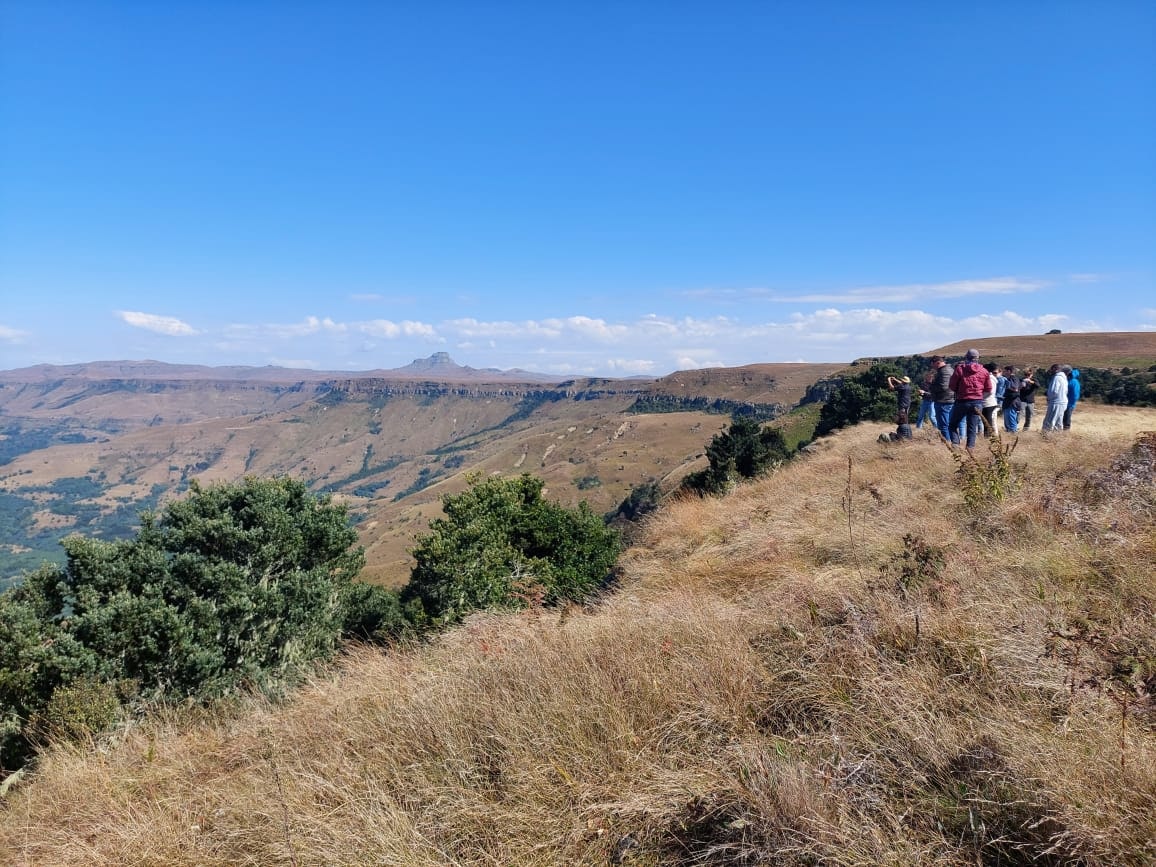
2017 Whitley Award winner Ian Little works in a biodiversity rich a region of South Africa that is one of the most important water catchments for both Johannesburg and Durban. With the support of Whitley Award funding, he has secured formal protection for more than 75,000 hectares of the Strategic Water Source Area (SWSA), which also serves as vital grassland habitat for several endemic and threatened species.
Using a second Continuation Funding grant (the first was awarded in 2019), he will finalise ongoing work to officially protect a further 40,000 hectares of priority SWSAs and identifying new potential protected areas with high biodiversity value and relatively intact ecosystem functioning. The success of Ian’s work depends upon long-term sustainability, and so it is vital that he works closely with local stakeholders, including landowners, communities, and the local conservation authorities, to identify these environments which are most suitable for protection.
Continuation Funding will enable Ian and his team at Endangered Wildlife Trust to facilitate discussions with these stakeholders to develop site-level management plans; pinpointing areas for targeted restoration work and sourcing further funding and investments to support their long-term success. Protected areas are specifically designed to enable ongoing agricultural practices while protecting other intact areas from future transformation or degradation. This kind of protection also provides some security against mining and prospecting; a severe threat for many of these landowners.
The introduction of Carbon Tax Act in South Africa has also created a market for those who can sequester carbon on their land – enabling carbon credits to supplement income streams. Ian and his team are offering landowners and communities services to calculate and assess carbon stocks, which offers another revenue stream for improving and incentivising conservation of their land.
Changing perceptions of the pampas deer to promote co-existence
Susana González (2010 Whitley Award) – £50,000 over 1 year
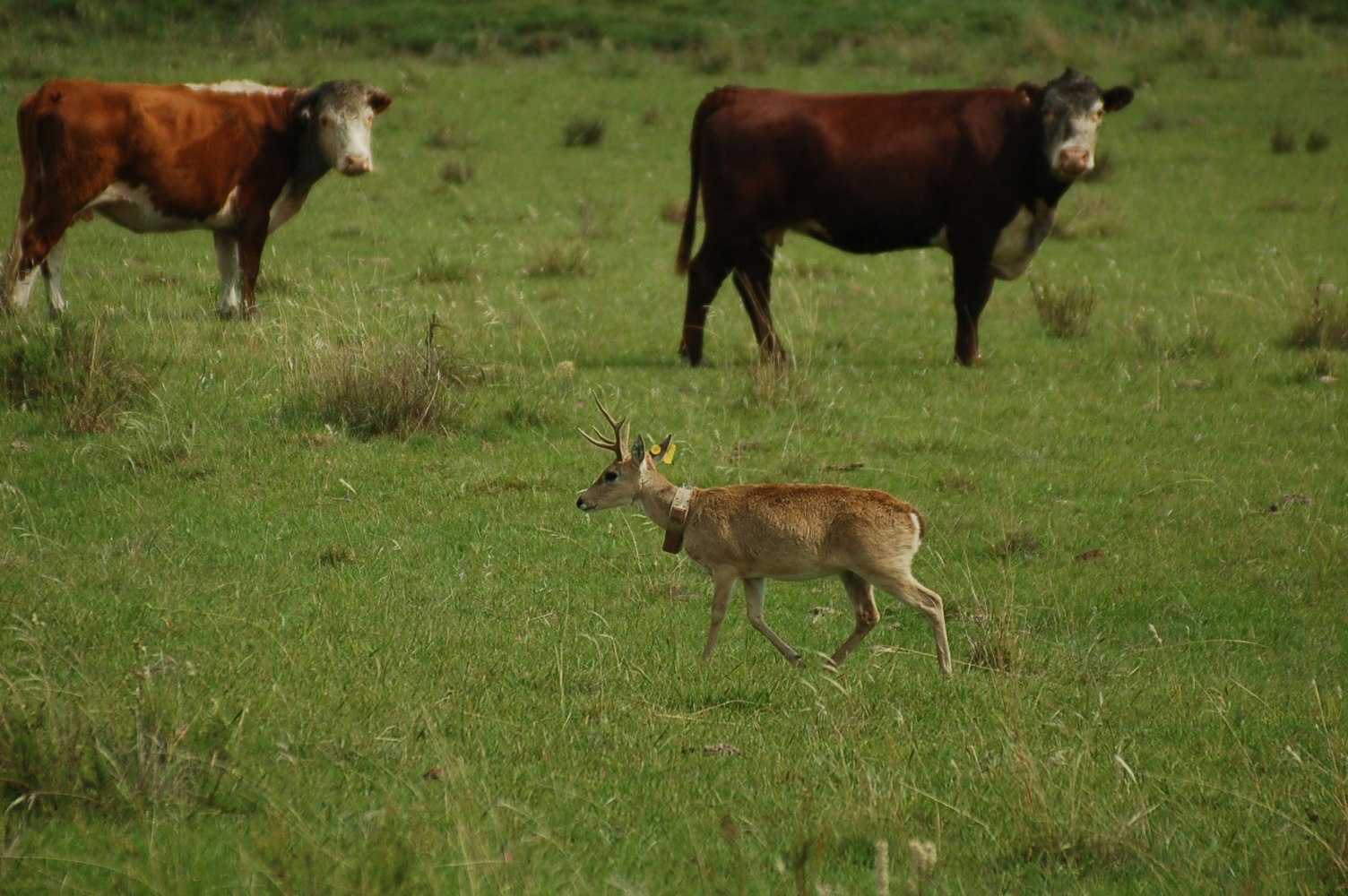
An expert on the Uruguayan pampas deer, Susana González is dedicated to protecting this umbrella species and its grassland home.
Her work focuses on data collection, assessing the status of pampas deer genetics, health, and interactions with the surrounding ecosystem, and using the evidence to improve outcomes for the species. Often seen as disease carriers and competitors for livestock, pampas deer clash with ranches in their home range. To mitigate human-wildlife conflict, Susana established a network of landowners, working with them to manage the grasslands more sustainably and change negative local perceptions around pampas deer.
Due to COVID-era government budget cuts, Susana has been unable to prepare future rewilding projects or create protocols for breeding and genetic variation. Continuation Funding will get this project back on track, allowing Susana to further her assisted reproduction programme that will help sustain a resilient population of deer. She will continue to monitor population trends, tracking the movements of five male individuals to determine their home range and seasonal behaviours. Lastly, Susana will continue to encourage coexistence by creating a national registry of landowners whose land overlaps with pampas deer ranges, providing them with the information and incentive to implement more wildlife-friendly farming practices.


